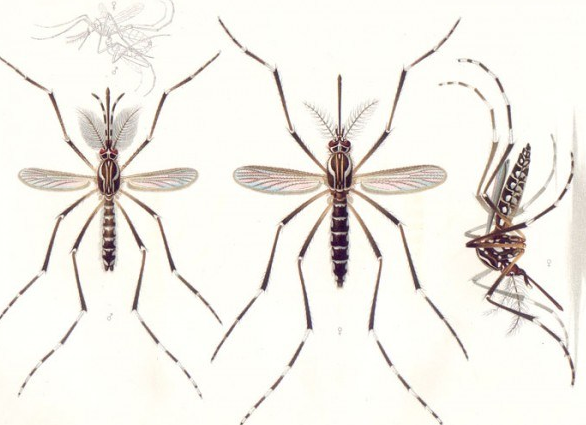Although it is somehow impossible to tell the physical differences between male and female mosquitoes with the naked eye, it is simple enough to tell the differences when the mosquito is viewed under a microscope or magnifying glass. In this article, learn the difference between male and female mosquito. The basis of comparison include: Antennae, Body size, Buzzing Sound, Lifespan and Human Contact effect.

Key Differences
- Male mosquitoes have bushy fine hairs on their long antennae (proboscis) which help them with hearing and in sensing their potential mates’ wing beats. Female mosquitoes’ antennae are less bushy and contain several blood odor receptors that help her target blood sources so that they can feed off their host.
- Male mosquitoes are relatively smaller than female mosquitoes.
- Female mosquitoes make a buzzing sound when flying around in the dark whereas a male mosquito does not make a buzzing sound.
- A female mosquito has a relatively longer lifespan than the male mosquito. A female mosquito average lifespan is between two and four weeks whereas that of a male is between one and three weeks.
- Male mosquitoes do not love human blood and they will typically avoid human contact unlike the female mosquito that loves to feed on human blood and thus they carry diseases such as malaria, ancephalitis and yellow fever.
Difference Between Male And Female Mosquito In Tabular
| BASIS OF COMPARISON | MALE MOSQUITO | FEMALE MOSQUITO |
| Antennae | Male mosquitoes have bushy fine hairs on their long antennae (proboscis) which help them with hearing and in sensing their potential mates’ wing beats. | Female mosquitoes’ antennae are less bushy and contain several blood odor receptors that help her target blood sources so that they can feed off their host. |
| Body Size | Male mosquitoes are relatively smaller than female mosquitoes. | Female mosquitoes are relatively smaller than female mosquitoes. |
| Buzzing Sound | A male mosquito does not make a buzzing sound. | A male mosquito does not make a buzzing sound. |
| Lifespan | A male mosquito has a relatively shorter lifespan than the female mosquito. A male mosquito average lifespan is between one and three weeks. | A female mosquito has a relatively longer lifespan than the male mosquito. A female mosquito average lifespan is between two and four weeks |
| Human Contact | Male mosquitoes do not love human blood and they will typically avoid human contact. | The female mosquito that loves to feed on human blood and thus they carry diseases such as malaria, ancephalitis and yellow fever. |